Serving 467 students in grades 5-8, Field Community ranks in the top 30% of all schools in Minnesota for overall test scores (math proficiency is top 50%, and reading proficiency is top 10%).
The percentage of students achieving proficiency in math was 47% (which was higher than the Minnesota state average of 45%). The percentage of students achieving proficiency in reading/language arts was 67% (which was higher than the Minnesota state average of 53%).
The student:teacher ratio of 31:1 was higher than the Minnesota state level of 13:1.
Minority enrollment was 28% of the student body (majority Black and Hispanic), which was lower than the Minnesota state average of 39% (majority Black and Hispanic).
School Overview
Grades Offered
Grades 5-8
Total Students
467 students
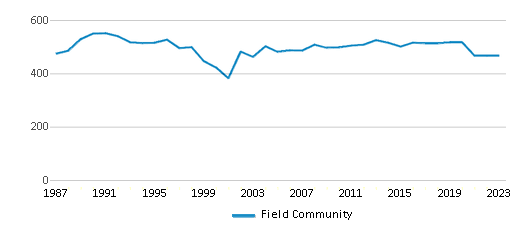
Gender %
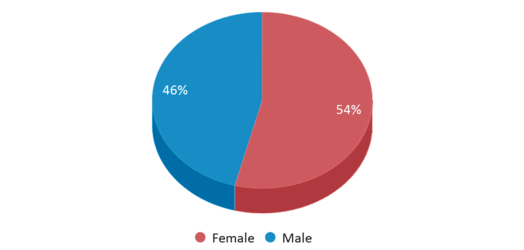
Total Classroom Teachers
15 teachers
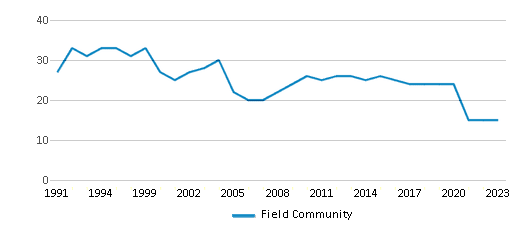
Students by Grade
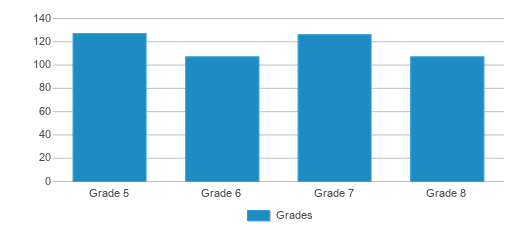
School Rankings
Math Test Scores (% Proficient)
(20-21)47%
45%
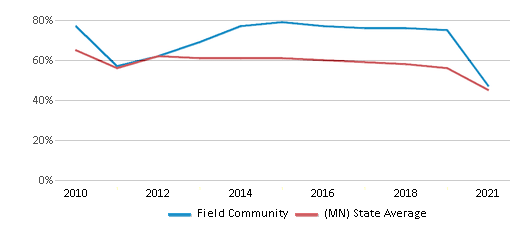
Reading/Language Arts Test Scores (% Proficient)
(20-21)67%
53%
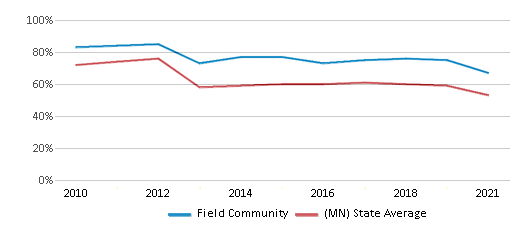
Science Test Scores (% Proficient)
(20-21)50-54%
45%
Student : Teacher Ratio
31:1
13:1
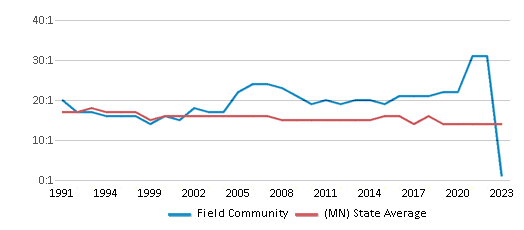
American Indian
1%
2%
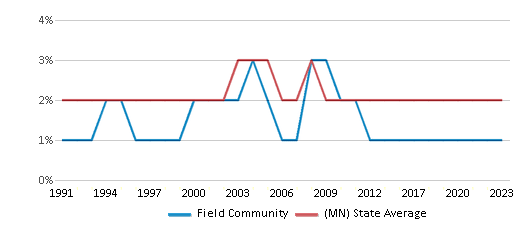
Asian
3%
7%
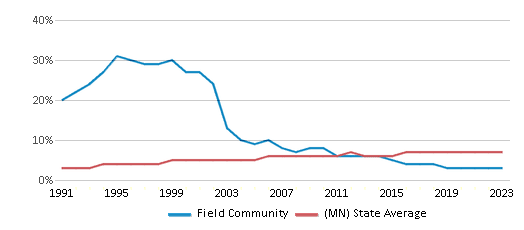
Hispanic
7%
12%
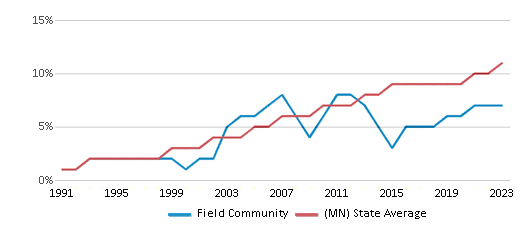
Black
8%
12%
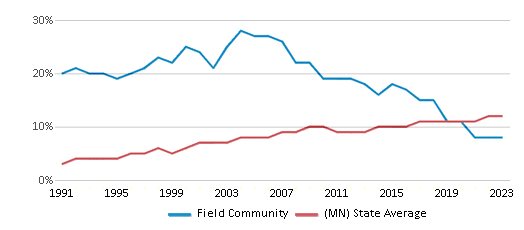
White
72%
61%
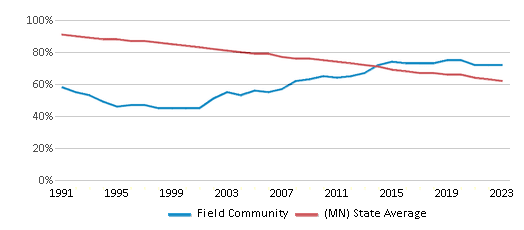
Hawaiian
n/a
n/a
Two or more races
9%
6%
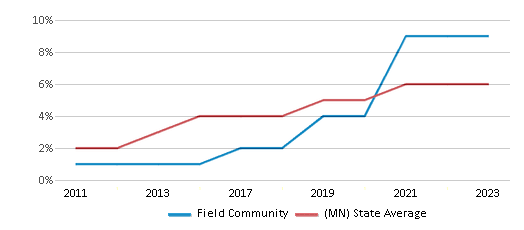
All Ethnic Groups
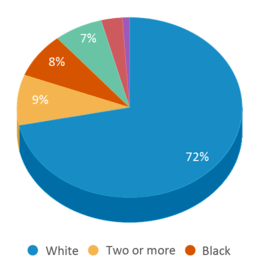
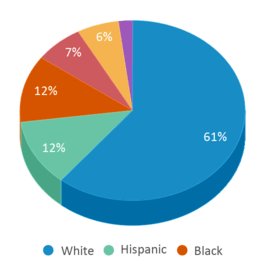
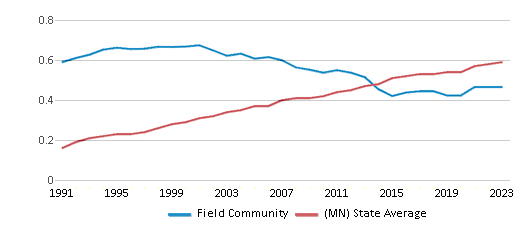
Eligible for Free Lunch
10%
36%
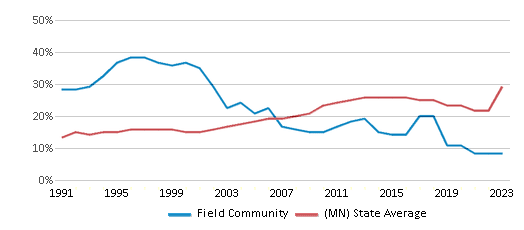
Eligible for Reduced Lunch
5%
7%
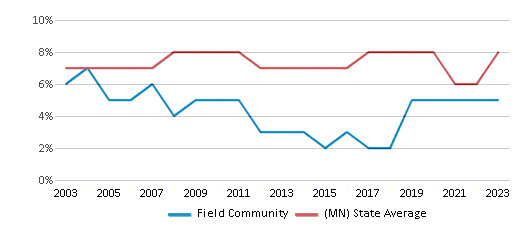
School Statewide Testing
School District Name
Sports
Total Sports Offered
4 sports
Sports
Baseball, Basketball, Soccer, Volley Ball
Source: National Center for Education Statistics (NCES), MN Dept. of Education
School Notes
- Field's average grade 8 Science MCA II scores are among the highest of all reporting public and non-public schools in the state.
- Field regularly surpasses the 95% attendance goal
- .More than half the student body participates in an instrumental or choral group
- .Many students participate in Science Bowl each year.
- Math teams have won numerous awards in district and state competitions.
- Girls in Engineering, Mathematics and Science (GEMS) is offered to girls in grades 5-8.Guys in Science and Engineering (GISE) is offered to 5th-8th grade boys.
- Field has a strong PTA, community and volunteer support.
Frequently Asked Questions
What percent of students have achieved state testing proficiency in math and reading?
47% of students have achieved math proficiency (compared to the 45% MN state average), while 67% of students have achieved reading proficiency (compared to the 53% MN state average).
How many students attend Field Community?
467 students attend Field Community.
What is the racial composition of the student body?
72% of Field Community students are White, 9% of students are Two or more races, 8% of students are Black, 7% of students are Hispanic, 3% of students are Asian, and 1% of students are American Indian.
What is the student:teacher ratio of Field Community?
Field Community has a student ration of 31:1, which is higher than the Minnesota state average of 13:1.
What grades does Field Community offer ?
Field Community offers enrollment in grades 5-8
What school district is Field Community part of?
Field Community is part of Minneapolis Public School District.
Recent Articles

What Is A Charter School?
Explore the world of charter schools in this comprehensive guide. Learn about their history, how they operate, and the pros and cons of this educational innovation. Discover key facts about charter schools, including admission policies, demographics, and funding, as well as what to look for when considering a charter school for your child.

10 Reasons Why High School Sports Benefit Students
Discover the 10 compelling reasons why high school sports are beneficial for students. This comprehensive article explores how athletics enhance academic performance, foster personal growth, and develop crucial life skills. From improved fitness and time management to leadership development and community representation, learn why participating in high school sports can be a game-changer for students' overall success and well-being.

February 05, 2025
Understanding the U.S. Department of Education: Structure, Impact, and EvolutionWe explore how the Department of Education shapes American education, from its cabinet-level leadership to its impact on millions of students, written for general audiences seeking clarity on this vital institution.





